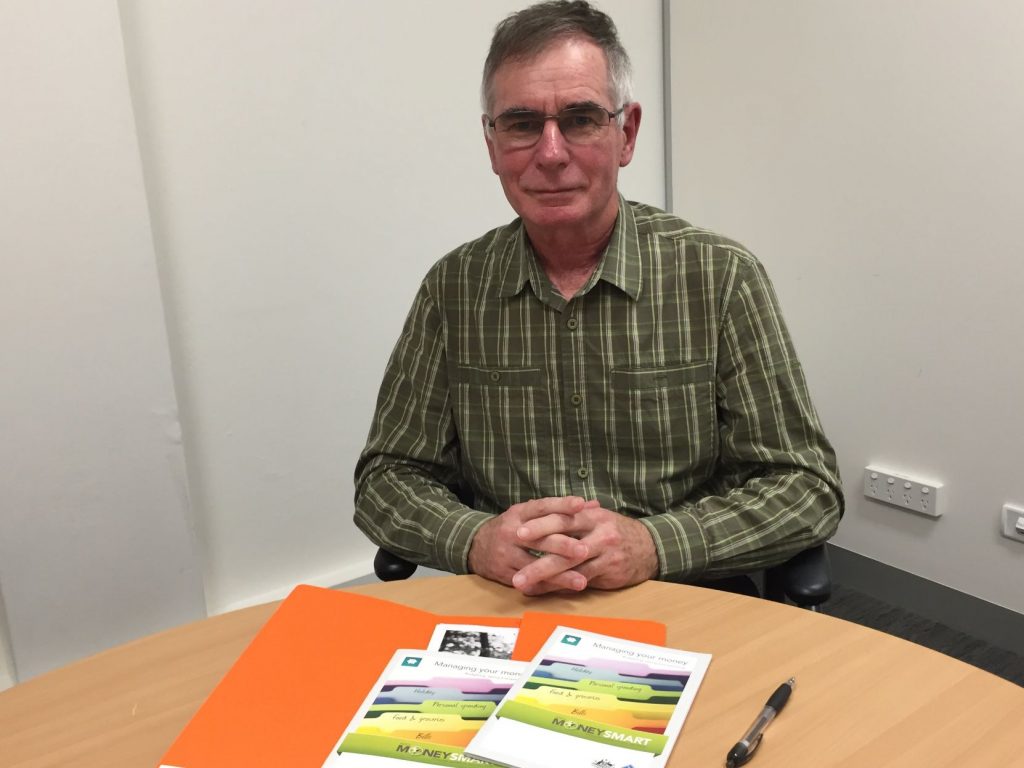Better equipped for life ‘outside’
June 1, 2019
Every week, Anglicare financial counsellor Ross Mackenzie willingly spends time behind bars.
“It is a different environment to work in but after a while you don’t actually notice it anymore,” he says of the security screening and fingerprint detection required to enter the maximum security prison. “So long as I can leave again – it’s all okay”.
Anglicare provides financial counselling to around 100 people in the state’s prison system, and in the past six months Ross has also begun delivering financial literacy sessions at the women’s prison and in the minimum security prison.
“People can feel very isolated and cut off in prison,” says Ross. “But it’s a good time for them to make a plan and get back in control of their finances”.
“Often, the time leading up to going to prison has been very chaotic and out of control,” he explains. “Things have been left for a long time that should have been attended to. And in some cases they’ve been left to the point where the decision-making has been taken out of their hands, such as being imprisoned for non-payment of fines”.
The new financial literacy sessions provide clear information about budgeting. Participants explore a variety of scenarios based on ‘real life’ experiences.
“There is often a reaction from clients that their income is so meagre ‘what’s the point of budgeting?’” Ross says. “They feel quite hopeless”. But the sessions help to change this point of view and restore a sense of control. “The benefits of a budget can be demonstrated in quite a short space of time,” he says. “We look at different elements such as tracking spending, working out income and expenses, and then allocating priorities for spending when your income is quite small”.
“Regardless of the situation, you’re not going to get ahead unless you look after the basics – rent, power, food and health,” he says. “From there it’s about working out what sort of flexibility there is to pay off any outstanding debt, looking at what you can actually afford”.
Ross says participants learn the power of spreading out larger expenses. “For example, nobody on a Centrelink income can afford a quarterly power bill,” he said. “But they can manage to pay on a fortnightly cycle”.
He says the sessions also discuss how to deal with unexpected costs such as replacing whitegoods. “It is making people aware of their options,” he says. “For example, some people will go to an appliance rental place and end up paying $3000 over time for a washing machine that would have cost $900 to buy”. Ross says the No Interest Loan Scheme is a practical alternative for people on low incomes.
Ross says resources from the financial literacy sessions are being shared on the prison intranet and in the weekly newsletter. “One of the benefits of the Financial Counselling service is we can provide people with information they’d otherwise find difficult to access from inside prison,” he says.
“Their relief is palpable when they’ve got a plan and know that all that can be done is being done,” says Ross. “There’s such a positive attitude, with people saying “Anglicare is always there for me when things are tough”. It’s gratifying to be part of an organisation that has that sort of reputation”.
Find out more about Anglicare’s Financial Counselling Service

